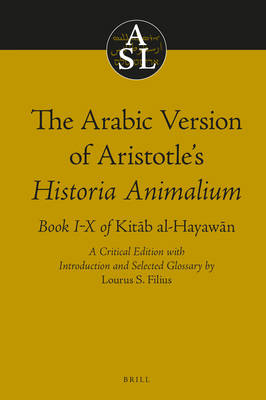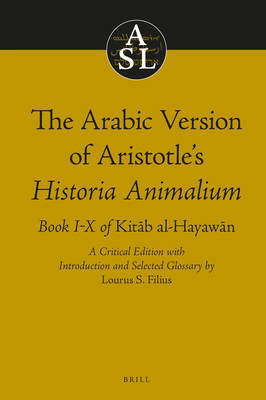
- Afhalen na 1 uur in een winkel met voorraad
- Gratis thuislevering in België vanaf € 30
- Ruim aanbod met 7 miljoen producten
- Afhalen na 1 uur in een winkel met voorraad
- Gratis thuislevering in België vanaf € 30
- Ruim aanbod met 7 miljoen producten
Zoeken
€ 262,95
+ 525 punten
Omschrijving
Aristotle's Historia Animalium is one of the most famous and influential zoological works that was ever written. It was translated into Arabic in the 9th century CE together with Aristotle's other zoological works, On the Generation of Animals and On the Parts of Animals. As a result, the influence of Aristotelian zoology is widely traceable in classical Arabic literary culture and thought. The Arabic translation found its way into Europe through the 13th-century Latin translation by Michael Scotus, which was extensively used by medieval European scholars. A critical edition of the Arabic Historia Animalium has long been awaited, and Lourus Filius's edition, based on all extant Arabic MSS, as well as on Scotus's Latin translation, can rightly be seen as a scholarly landmark.
Specificaties
Betrokkenen
- Auteur(s):
- Uitgeverij:
Inhoud
- Aantal bladzijden:
- 554
- Taal:
- Engels
- Reeks:
- Reeksnummer:
- nr. 23
Eigenschappen
- Productcode (EAN):
- 9789004315952
- Verschijningsdatum:
- 18/10/2018
- Uitvoering:
- Hardcover
- Formaat:
- Genaaid
- Afmetingen:
- 160 mm x 236 mm
- Gewicht:
- 907 g

Alleen bij Standaard Boekhandel
+ 525 punten op je klantenkaart van Standaard Boekhandel
Beoordelingen
We publiceren alleen reviews die voldoen aan de voorwaarden voor reviews. Bekijk onze voorwaarden voor reviews.








